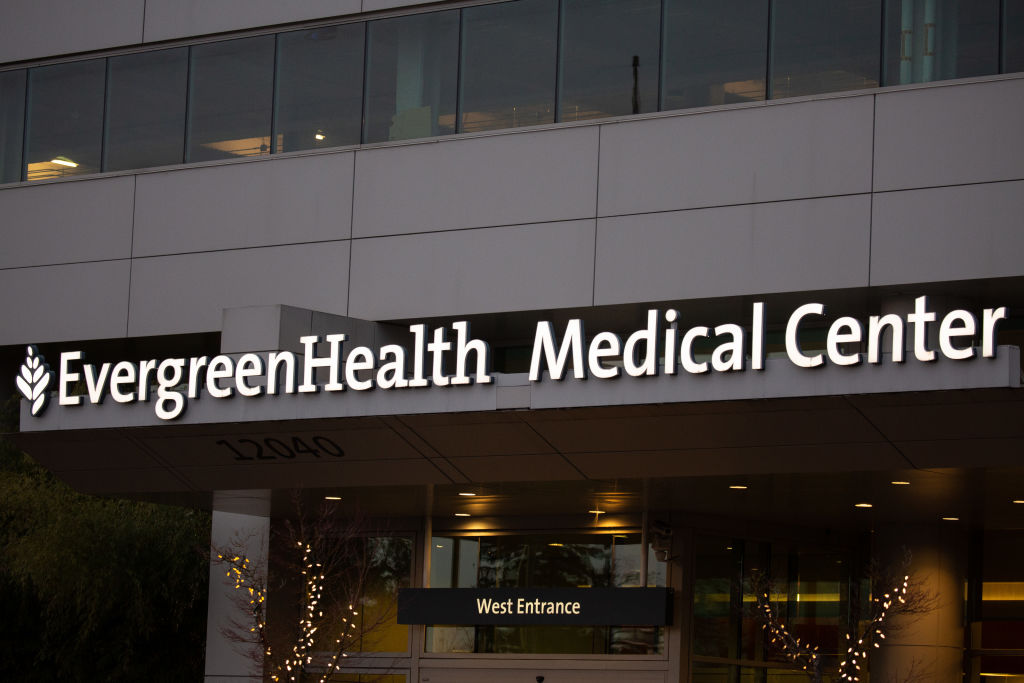A Seattle-area hospital and Italy show what awaits America's health care system if coronavirus surges


A free daily email with the biggest news stories of the day – and the best features from TheWeek.com
You are now subscribed
Your newsletter sign-up was successful
The point of canceling large events and encouraging "social distancing" as the new COVID-19 coronavirus spreads throughout the U.S. isn't to stop the disease, a goal public health experts say isn't attainable in the short run. It's to spread out the infections so the U.S. health care system isn't stretched to the breaking point. Italy, with — as of early Thursday — 12,462 confirmed COVID-19 cases and 827 deaths, is a stark example of what can happen when the epidemiological tidal wave breaks hard.
When Italy had 322 confirmed COVID-19 cases two weeks ago, "doctors in the country's hospitals could lavish significant attention on each stricken patient," Yascha Mounk reports at The Atlantic. A week later, with 2,502 cases, "doctors in the country's hospitals could still perform the most lifesaving functions by artificially ventilating patients who experienced acute breathing difficulties," but now, with "too many patients for each one of them to receive adequate care," doctors and nurses are being advised to save younger and healthier patients and let older, sicker patients die, like "wartime triage."
Things aren't quite so bleak at EvergreenHealth Medical Center, the small suburban hospital in Kirkland, Washington, that has "faced the brunt of the rapidly escalating coronavirus outbreak," with 65 positive cases and 15 deaths, and counting, The New York Times reports. But "while much of the country is just starting to see clusters of cases emerge, the hospital east of Seattle offers a window into the challenges set to cascade through the nation's health care system. ... The past few weeks have seen medical workers operating at the very edges of their capabilities, facing a virus so virulent that some patients were dying within hours of coming down with their first symptoms."
The Week
Escape your echo chamber. Get the facts behind the news, plus analysis from multiple perspectives.

Sign up for The Week's Free Newsletters
From our morning news briefing to a weekly Good News Newsletter, get the best of The Week delivered directly to your inbox.
From our morning news briefing to a weekly Good News Newsletter, get the best of The Week delivered directly to your inbox.
Read more about the toll on medical workers and the logistics of setting up isolation wards and improvising with safety gear at The New York Times. "But if Italy is in an impossible position, the obligation facing the United States is very clear: To arrest the crisis before the impossible becomes necessary," Mounk writes. "This means that our political leaders, the heads of business and private associations, and every one of us need to work together to accomplish two things: Radically expand the capacity of the country's intensive care units. And start engaging in extreme forms of social distancing. Cancel everything. Now."
A free daily email with the biggest news stories of the day – and the best features from TheWeek.com
Peter has worked as a news and culture writer and editor at The Week since the site's launch in 2008. He covers politics, world affairs, religion and cultural currents. His journalism career began as a copy editor at a financial newswire and has included editorial positions at The New York Times Magazine, Facts on File, and Oregon State University.
